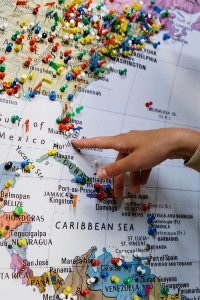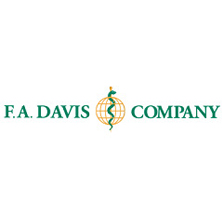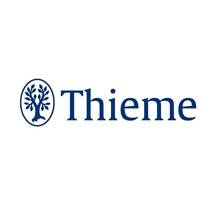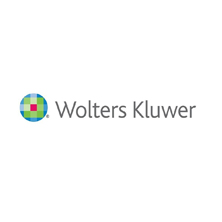International Exchange
Globalization
 The rebound of world trade has surpassed even the most optimistic early forecasts. Trade in goods dropped faster in March and April 2020 than during the Great Depression and the global financial crisis. But it started growing again in June and rocketed all the way back to its pre-pandemic level by November.
The rebound of world trade has surpassed even the most optimistic early forecasts. Trade in goods dropped faster in March and April 2020 than during the Great Depression and the global financial crisis. But it started growing again in June and rocketed all the way back to its pre-pandemic level by November.
Cross-border investment flows were hit even harder than trade by Covid-19. Investors withdrew record amounts of portfolio capital from emerging markets at the onset of the pandemic, but these flows quickly stabilized and then rallied in late 2020. Bold fiscal and monetary policy responses have, thus far, prevented the Covid-19 crisis from turning into another global financial crisis.
So, the pandemic has not halted most types of international flows. Nor has it clearly turned the tide toward deglobalization moving forward.
And Health Education for Equity has tried to cope with the challenges Covid-19 played through education. In Latin America, 90% of the institutions closed their doors for over a year and a half, leaving the entire territory lacking in educational supplies, traditional classes and basically no resources in education to guarantee that the younger population would continue their studies for over a year.
The lack of technological infrastructure at public institutions made the entire school system in many countries lacking, having to resort to distance learning without internet, digital content and digital transformation for education. That is why it is very important to rely on traditional content such as magazines, books and encyclopedias. Though in some countries like Mexico and Brazil the reach of digital transformation is higher than in other countries, they still remain well adjusted to traditional content, though digital transformation is happening at a higher pace than other countries.
Latin America and the Caribbean have made progress in increasing the enrollment in pre-primary, primary and secondary education the last decades. Yet, there are still gaps in the access and completion of education as 12 million children and adolescents ranging between ages 7 to 18 are out of the educational system.
Investment in English curriculum
Levels of English in Latin America improved during the pandemic, with more than 70% of countries from the region seeing proficiency grow during 2020, according to a new study.
 The news will be of particular interest to investors and companies looking to enter the region, with higher levels of English in Latin America making it a more enticing destination for doing business.
The news will be of particular interest to investors and companies looking to enter the region, with higher levels of English in Latin America making it a more enticing destination for doing business.
“The psychology of why people decide to test their English isn’t obvious, but if people are looking for work, considering a job change, actively studying English, or planning to start a course, they are more likely to test their English as part of that process,” Kate Bell told Biz Latin Hub by email.
Government and public institutions have begun investing in a more diversified approach towards education. With English being the most important factor when doing our analysis. At higher level of education, universities have adopted a stronger English-related approach and have started actively offering English curriculum majors and workshops.
Countries like Brazil, Mexico, Colombia, Panama, Argentina and Costa Rica keep investing and signing agreements with Universities in the US where they look up to develop their syllabus and continue their globalization preparing students in an ever-changing globalized world.
Universidad de la Javeriana in Bogota Colombia recently renewed their agreement with several Universities in the US to expand their offering in English international programs and is joined by Universidad del Rosario, CES de Medellin among others. These are only a few institutions in Colombia who keep investing in international programs.
Brazil has made it clear it wants to remain competitive in the educational landscape, promoting and offering international programs at their public institutions. Through CAPES, the government consortia in Brazil, they have launched bids for content in any format and investing in education for international programs.
Mexico, needless to say, is one of the countries with many agreements with public and private institutions. Through private and government bids, Mexico remains one of the top spots on international programs. ITESM one of the most technological private institutions has agreements with over 40 institutions with the US and offers bachelors degree that are fully taught in English, and UNAM with their international program remains one of the biggest institutions in LATAM.
The list goes on, but it is safe to say that LATAM is betting on international programs and want to remain competitive on a globalized world and determined to develop new professionals that can navigate the ever-changing landscape and remain competitive.
In this instance HEFE has been playing a big part with the signed institutions. Health Education for Equity has over 150 points of sale all around Latin America but focused on Mexico, Argentina, Brazil, Colombia, Chile, Panama, Puerto Rico and Colombia. With our reach, we have been able to sign agreements with institutions, with consortias and governments that have granted us a privilege position on both type of educational content, from Spanish to English.
HEFE – The perfect partnership
Health Education for Equity in collaboration with our partners continue to offer great services and prices to better adapt to emerging market conditions. HEFE continues the PanAmerican Health Organization’s mission of helping public institutions and emerging governments in developing future generations and giving them access to relevant and important content at a beneficial rate so they can continue with the internationalization in education.
While we understand that content is valuable, we need to address concerns in regions that are different from developed countries and we are continuously in communication with publishers and institutions alike to better understand the needs and issues regarding distribution.
HEFE will continue to be a key partner to both sides and contribute in the development of professionals in Latin America and other emerging markets. And both sides continue to trust on our team’s work all these years and we will continue to grow with their help.











